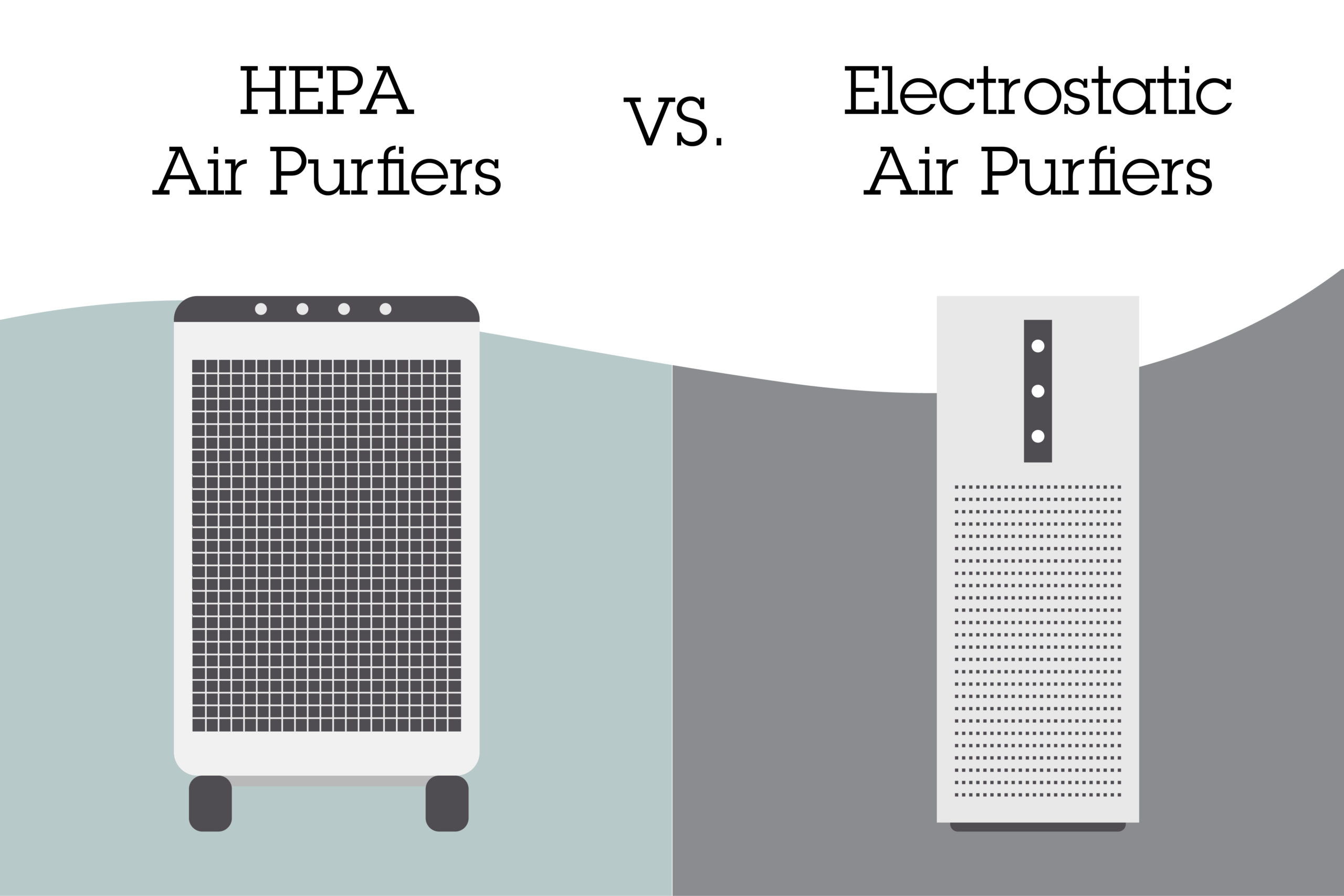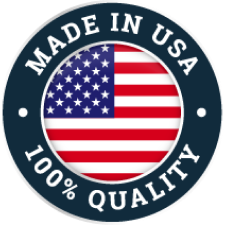
Purchasing an air purifier for your home or business is an important investment in improving your air quality and protecting the health of loved ones or customers. If you are taking this step to invest in an air purification unit, make sure you are buying the most effective system and getting the best bang for your buck. There are two primary types of air purifiers – electrostatic and HEPA. Both have their pros and cons, and we’ll break them down and help you develop a better understanding of which type of air purifier you should buy.
An electrostatic filter creates an electric charge to attract dust, pollen, mold, and pet dander to the internal magnetic filter as they pass through the system. Once the particles are charged they are then drawn to the sides of the filter, which must be washed every two to three months. The fact that electrostatic filters are reusable is often used as a selling point, but it’s important to note that in the time that you are washing the filter, you are missing out on the benefits of clean, healthy air. The electrostatic filters also begin losing efficiency immediately after each cleaning as captured particles cling to the sides of the filter and make it more difficult for new charged particles to cling on. Electrostatic filters also produce ozone, which is a potentially hazardous health and environmental consideration.
HEPA (high-efficiency particulate air) filters use a fine mesh material to capture particles and much more efficient than electrostatic filters. Instead of the hassle of washing your filter, a HEPA filter can simply be replaced once a year. These filters will remove 99.97% of dust particles in the 0.3-micron range, while an electrostatic filter checks in at 97%. With millions of microscopic particles floating around in the air we breathe, that difference adds up. By another, perhaps more important measure, the HEPA filter is even more efficient. A HEPA filter has a first-pass efficiency of 87-99%, while an electrostatic filter has only 60-80% first-pass efficiency. In layman’s terms, this means that the HEPA filter catches more particles on their first trip through the system and cleans your rooms’ air that much faster.
Overall, it’s clear that the HEPA filter is the superior choice for your air purification needs. HEPA filters are simple to replace once or twice a year and do not require you to spend time cleaning them. They also clean air more efficiently and do not begin losing effectiveness between cleaning or replacement cycles. If you want hassle-free, clean air, it’s clear that an air purifier with a HEPA filter is the right call.
MatrixAir is a leading American manufacturer of air purifiers utilizing HEPA filters. Each of our air purifiers comes with a one-year supply of medical-grade HEPA filters to help you make your home or business a healthier place to breathe. For more information and to learn how we can meet your air purification needs, give us a call at 603-426-2611 or email [email protected]

